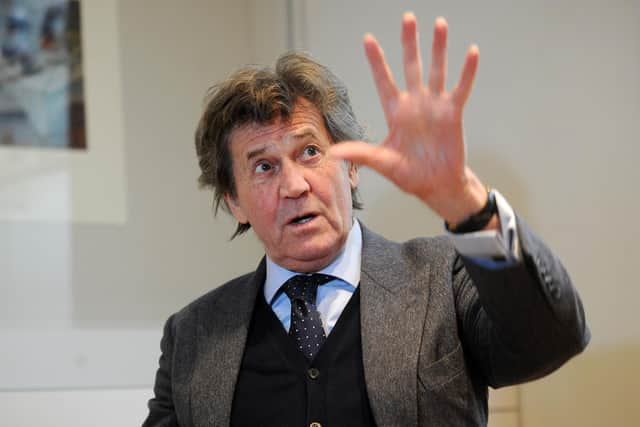2022 Arts Preview: The Year Ahead in Books


Second novels are notoriously difficult, all the more so when the author has had a glittering success with the first one. Douglas Stuart won the Booker with Shuggie Bain in 2020. Young Mungo, the story of two boys growing up gay in a rough part of Glasgow, was written before Shuggie was longlisted for the Booker, and is therefore unaffected by that book’s success. It will surely attract more attention that any other Scottish novel this Spring, even though there are new novels from Ali Smith (Companion Piece) and Louise Welsh (The Second Cut, a sequel, 20 years after, to The Cutting-Room.)
Mercia’s Take by Daniel Wiles is a first novel already attracting attention, its publisher, Swift Press, having secured an endorsement from Hilary Mantel, who calls this story of the Industrial Revolution an exploration of “buried history”.
Advertisement
Hide AdSome novelists need no such endorsements. There are new novels this year from the ever reliable and delightful Anne Tyler (French Braid), from Julian Barnes (Elizabeth Finch, which he describes as “a loving tribute to philosophy”) and in September from Robert Harris – a book called Act of Oblivion, which tells of the hunt for the Regicides, men who had signed Charles I’s death warrant and who had mostly fled England when the monarchy was restored in 1660.


There are always novelists who don’t have the success you think they deserve. One is Michael Arditti, another Robert Edric. Both have books out this Spring, Arditti a novel, Edric a memoir of growing up in Sheffield. Arditti’s novel, The Young Pretender, is not about the Prince, but about the Victorian boy actor who rose fast to fame and fell as swiftly. He had a great success in Douglas, the play that occasioned the triumphant cry “Whaur’s your Wullie Shakespeare noo?” Still going of course, unlike the author of Douglas. Edric’s novels have been demanding. His memoir may encourage readers to seek them out.
Another memoir of childhood comes from Melvyn Bragg. Back in the Dark Days covers ground he has already explored in novels, making for an interesting comparison. Which is more truthful: memoir or fiction?
In April 4th Estate publish what may be one of the great European novels, Grand Hotel Europa by the Dutch author Ilja Leonard Pfeijffer. It explores “a place where so much history resides that there is no place left for the future” – except perhaps as a theme park for curious tourists.
Nevertheless we still eagerly explore history. Rosemary Goring, author of two novels set in the early 16th century, now returns to non-fiction with Homecoming, sub-title “The Scottish Years of Mary Queen of Scots” (Birlinn). There weren’t many of them, a few as a child before she was whisked off to France for safety and education, then seven dramatic ones as Queen Regnant. She spent longer as a captive in England that she did in Scotland. It will be interesting to see how Goring treats her as a political figure, rather than as a romantic one.


More remote but equally fascinating history is explored by Gordon Noble and Nicholas Evans in Picts, sub-titled “Scourge of Rome, Rulers of the North”. To what extent they scourged Rome may be doubtful, but then so much about the Picts remains mysterious, open to speculation.
Advertisement
Hide AdOne of the more immediately important books to be published this new year is surely Oliver Bullough’s: Butler to the World. It offers – or promises to offer – the story of “How Britain became the servant of tycoons, Tax-Dodgers, Kleptocrats and Criminals”. If Bullough gets it even half-right, then he will be doing us a service, since it is only by exposing and understanding the depth of this shameful corruption that any reform of our damaged polity is possible.
Geoff Dyer is a writer with the keenest of eyes and most enquiring of minds. His new book of essays is entitled The Last Days of Roger Federer and will be published by Canongate in June, in time for what may be the Fed’s last Wimbledon. But it goes, one of not surprised to be told, well beyond tennis, being a meditation on the last years and works of artists as well as sportspeople, possibly even politicians too – though whether Dyer finds anything of interest in Donald Trump’s last years may be doubtful.
A message from the Editor:


Advertisement
Hide AdThank you for reading this article. We're more reliant on your support than ever as the shift in consumer habits brought about by coronavirus impacts our advertisers.
If you haven't already, please consider supporting our trusted, fact-checked journalism by taking out a digital subscription at https://www.scotsman.com/subscriptions